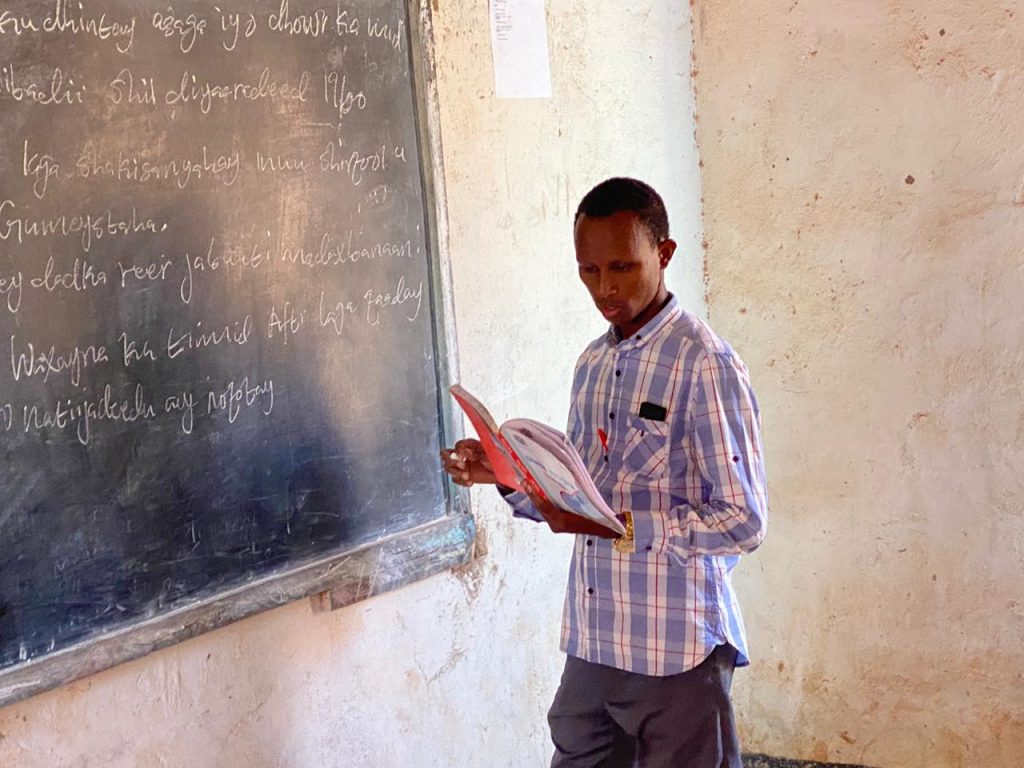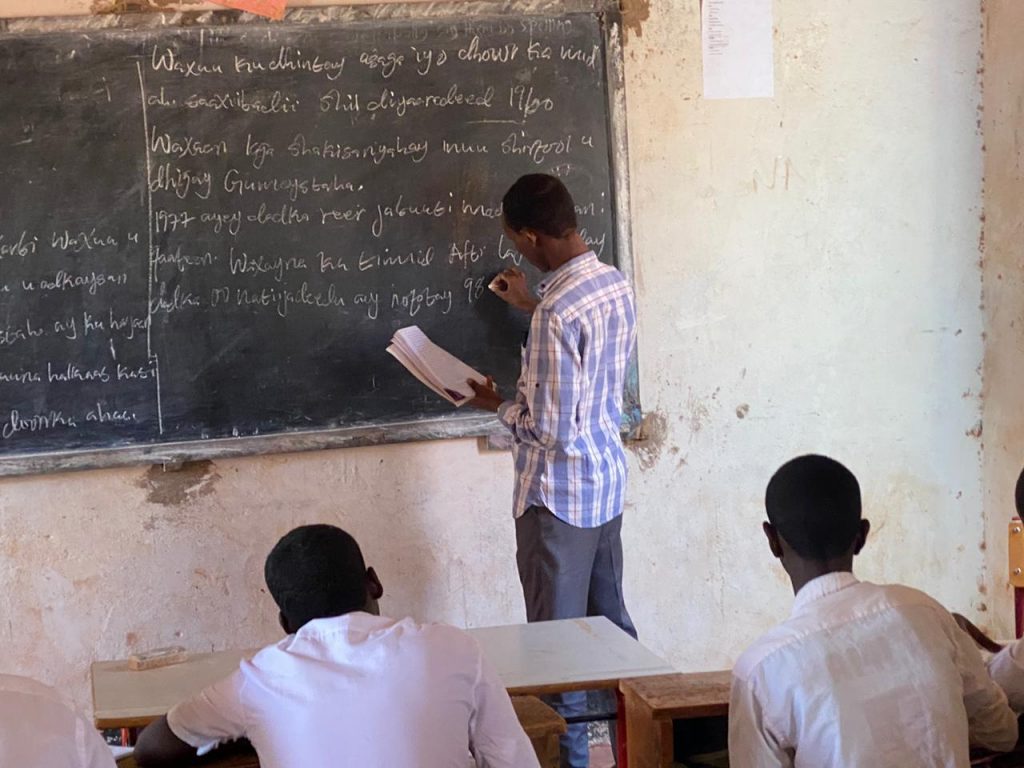
In Somalia, school absenteeism not only stems from the lack of children in the schools but also the empty teacher’s desk. Teacher absenteeism has been caused mainly by insecurity compounded by a lack of payment and low salaries.
To add salt to injury, confronted with the COVID-19 pandemic, the Somali Government closed all public and private educational institutions to contain the virus’s spread. The school closure became effective on 21 March 2020, mostly impacting teachers who mainly work in private and community-owned schools.
In Alqalam primary school in Balethawa, we meet Mr. Abdifatah Mohamed Muhumed, a 28-year-old headteacher. Schools have just reopened after a five-month closure. With the sound of childish laughs fading into the distance, Abdifatah gives us insight into his work as a teacher.
“For many years we have grappled with inadequate salaries and a lack of teachers in most schools in our area. Still, we persevered in the quest to provide our children with an education, through the little support offered by the community and the parents. The coronavirus pandemic imposed a radical switch and brought about unprecedented hardships on most teachers in the area.”
The closure of schools by The Ministry of Health saw many teachers without a source of income, as many schools could not afford to pay the teachers. Several qualified teachers left to look for alternative sources of income. Now the schools have reopened, and there are even fewer teachers than before.
To enhance equitable access to basic quality primary education to the minority and marginalized communities through education for peace and sustainable development support in Gedo, NOMADIC ASSISTANCE FOR PEACE AND DEVELOPMENT with funding from NORWEGIAN CHURCH AID supported 84 primary school teachers and 20 primary headteachers from 20 schools with teacher incentives. The headteachers were supported with $100 monthly incentives while the teachers were supported with $90 monthly incentives.
The teacher’s incentives also motivate me to deliver quality education to our children.
Abdifatah Mohamed

“I am very grateful for the support and much more so during the pandemic. The incentives helped me carry on with my profession and retained me to ensure students had teachers when school reopened. It also helped me during the pandemic as it was the only income that I had to support my family. The teacher’s incentives also motivate me to deliver quality education to our children,” Says Abdifatah.
